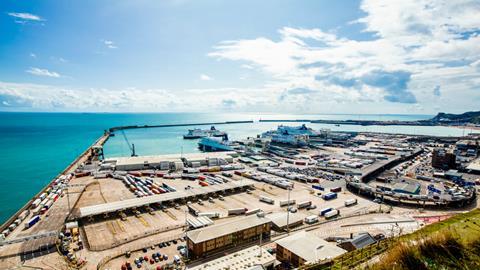MPs are demanding Defra clarifies whether new post-Brexit border import and food inspection checks, due to be launched tomorrow (30 April), will be delayed for a sixth time.
The letter from the Committee for Environmental, Food and Rural Affairs to to Steve Barclay, Defra secretary of state, was prompted by the department’s recent rebuttal of reports in the media which suggested the new import checks and inspections regime would not commence, in full, tomorrow.
Defra stated that “checks are commencing from 30 April and, as we have always said, the medium and high-risk goods posing the greatest biosecurity risk are being prioritised as we build up to full check rates and high levels of compliance”.
In response to this claim the committee’s letter states: ”Although your department’s response to the media reports affirms that checks will commence from 30 April, the Defra presentation reportedly states that you plan to initially set the rate of checks to zero per cent for all commodity groups.
”We are concerned that this is a sixth delay to the implementation of SPS import checks in all but name.”
The committee’s letter asks Defra ‘what a “graduated” or “light touch” approach to the 30 April measures look like in practice’ and ‘what percentage of new SPS checks on imports will take place from 30 April in each risk category’.
The letter also asks when the measures will be scaled up to their intended capacity, and what ‘barriers remain to implementing any or all checks on 30 April’.
Other questions include what impact any delays to the expected checks will have on goods being imported from non-EU countries.
The letter calls on Defra to ”urgently take steps to communicate the changed arrangements to businesses and the public to build confidence in our incoming border controls and reduce disruption”.
The committee has asked Defra to reply to its letter by 30 April.
The committee also published the reply from Lord Douglas-Miller, Defra minister for biosecurity, animal health and welfare, to its letter of 26 March, in which it asked for a response to concerns raised by Dover District Council about the new SPS import checks and border controls at Dover, including concerns around moving all commercial imported food controls 22 miles inland to a border control post (BCP) in Sevington.
His response states that ”robust, data-backed enforcement options” will mitigate the risk of legitimate commercial loads not attending for inspection at Sevington.
Regarding illegal imports of meat, the letter says that suspect vehicles ”will continue to be stopped and dealt with by Border Force at the point of entry to the UK, not sent to a BCP”.
Nichola Mallon, Logistics UK head of trade and devolved policy, welcomed the committee’s demand for clarification.
She said: ”Logistics UK wholeheartedly supports the EFRA Committee’s request for a clear and unambiguous explanation from Defra as to how import checks will be rolled out from 30 April.
“It is indicative of a chaotic and confusing situation, which we have been raising with government for some time, that the select committee has been forced to seek clarity at this late stage and shows concerns are shared across the political spectrum, just as they are shared across industry.
“Our members need clarity so they can operate effectively, protect the UK’s supply chain and continue delivering goods up and down the country that we all rely on and use every day.”

















